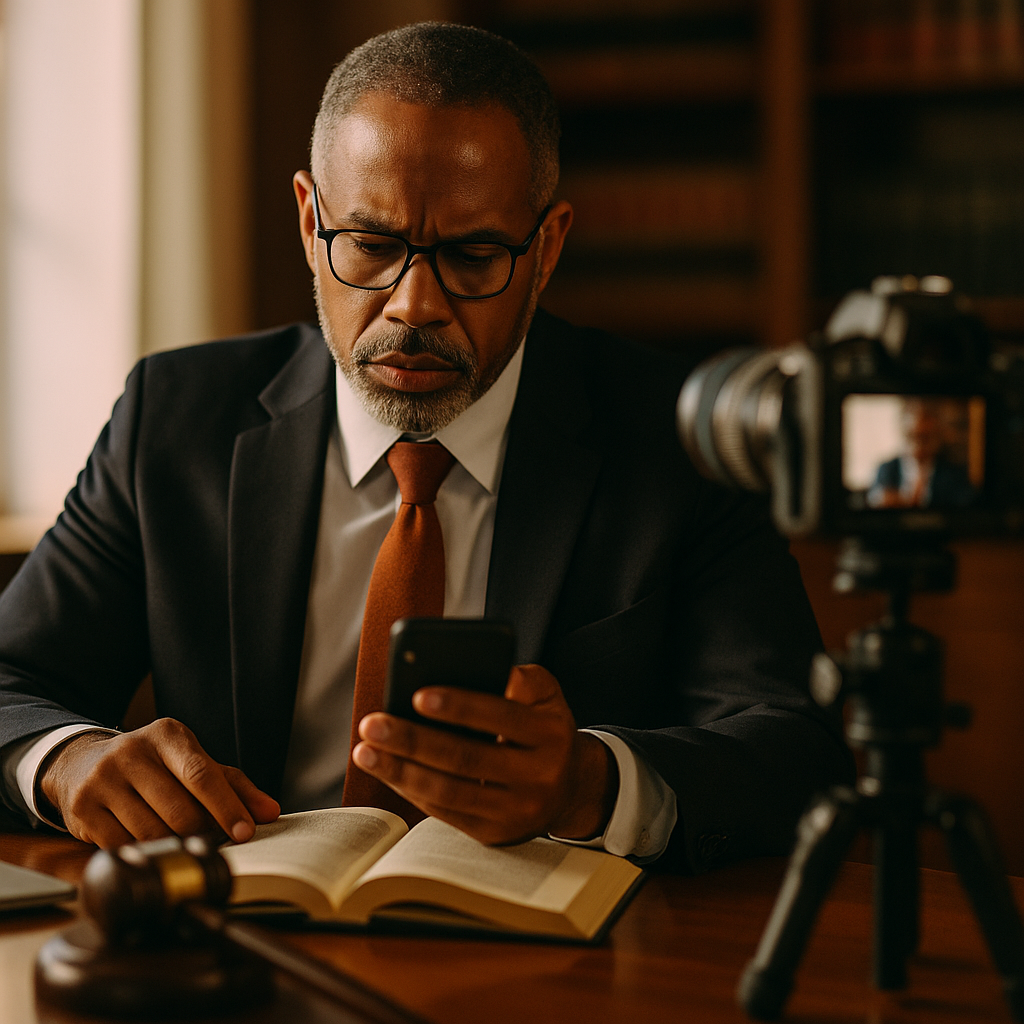The creator economy presents new opportunities and risks for businesses. This guide equips any Chief Legal Officer with actionable strategies to effectively navigate risk in the creator economy. Here’s a practical checklist and expert insights to help you stay compliant, protect your brand, and unlock creative partnerships—while anticipating the legal challenges ahead.
Understanding the Creator Economy: Key Legal Risks for CLOs
The rise of influencers, content creators, and platforms like TikTok and YouTube has reshaped commerce and communication in 2025. The creator economy thrives on authentic brand collaborations, but also brings unpredictable risks. Chief Legal Officers (CLOs) must identify the main legal hazards:
- Intellectual property (IP) challenges—Content is often repurposed without clear rights or permissions.
- Data privacy compliance—User data is frequently exchanged and needs secure management.
- Adherence to advertising guidelines—Creators may inadvertently break FTC rules.
- Jurisdiction issues—Digital content easily crosses global borders, creating regulatory complexity.
Conduct a thorough risk assessment before engaging any creator partnerships, and ensure your legal and marketing teams are collaborating proactively at every campaign stage.
Establishing Robust Influencer Agreements: Best Practices for Brand Safety
Clear, legally-sound agreements are the cornerstone of risk mitigation within the creator economy. For every brand collaboration, CLOs should ensure:
- Specific deliverables and content usage rights are defined in writing.
- Disclosures about sponsored content comply with the FTC’s Endorsement Guidelines (updated in 2024).
- Moral turpitude and conduct clauses protect your brand if a creator engages in reputational harm.
- Content review processes are established, balancing authenticity with compliance checks.
- IP ownership (copyright, trademarks) is assigned clearly—does your business or the creator retain rights?
Don’t overlook contract renewals and periodic reviews, which allow adaptation as laws and creator economy platforms evolve.
Managing Data Privacy and Security: Protecting User and Business Information
Data privacy has shifted from a compliance issue to a core brand value. With stricter regulations worldwide in 2025, a Chief Legal Officer must:
- Map the flow of user data across all creator campaigns and ensure explicit consents are collected when needed.
- Apply data minimization and retention best practices—only collect what you absolutely need.
- Understand cross-border transfer rules; even small creator partnerships may require GDPR, CCPA, or APPI compliance.
- Train marketing and creator partners on safe data handling.
- Communicate a clear data breach procedure—and ensure indemnity language is included in all contracts with creators.
Integrating privacy-by-design principles will safeguard your business and foster trust with both creators and users.
Intellectual Property Protection: Ownership and Infringement Prevention in Creator Partnerships
Viral content and rapid publishing are hallmarks of the creator economy, but also increase IP risk—making intellectual property protection a top priority for CLOs. Take these steps:
- Clarify whether your business, the platform, or the creator owns the content and any IP created.
- Vet all creative assets for copyright, music, trademarks, or personality rights clearance before publication.
- Monitor for unauthorized use of your brand or campaign assets online and leverage takedown tools aggressively.
- Educate creators on fair use, copyright, and brand protection—empowering them to become risk-aware partners.
- Maintain a digital rights management (DRM) protocol, ideally with automation, for campaign assets and influencer content libraries.
With AI-generated and remix content rising in 2025, proactive ownership and licensing become even more crucial.
Compliance and Monitoring: Ongoing Oversight in the Creator Ecosystem
Ensuring compliance in the creator economy is not a one-time task. CLOs should build repeatable, agile systems for:
- Real-time monitoring of campaigns, not just pre-launch reviews.
- Automated alerts for potential regulatory breaches or brand safety incidents.
- Regular training for your internal teams and creator partners, focusing on current laws and emerging platform policies.
- Incident escalation protocols—make sure you can rapidly respond and recover from PR or legal crises initiated through creator actions.
Explore compliance technologies that offer end-to-end tracking—from contracting to campaign analysis. This enables CLOs to enforce standards across every stage of creator collaboration, dramatically reducing reputational and regulatory risk.
Strategic Collaboration with Creators: Enabling Innovation While Mitigating Legal Exposure
The most effective CLOs don’t just mitigate risk—they facilitate smart, creative innovation. Foster genuine, transparent partnerships by:
- Involving legal early in campaign planning, ensuring opportunities (and concerns) are surfaced up front.
- Building relationships with creators based on mutual respect for brand values and compliance requirements.
- Empowering creators with brand-safe content toolkits and legal education resources.
- Piloting new formats or platforms with a risk-tested approach, learning from data, and then scaling responsibly.
When legal and marketing teams collaborate seamlessly with the creator community, they create a culture of responsible innovation, fueling long-term brand growth and trust.
Conclusion: CLOs as the Safeguards of Sustainable Growth in the Creator Economy
The creator economy evolves rapidly, but the essentials of risk mitigation for Chief Legal Officers remain the same: proactive planning, transparent agreements, vigilant monitoring, and collaborative innovation. By following this checklist, CLOs can confidently protect their organizations while enabling creative, compliant growth in the ever-changing digital landscape of 2025.
FAQs: Chief Legal Officers and the Creator Economy
-
What is the biggest legal risk for brands partnering with creators?
Intellectual property infringement and lack of clear content rights can expose brands to lawsuits and reputational damage. Prioritize watertight contracts and IP vetting. -
How can CLOs ensure compliance with new influencer marketing laws?
Stay updated on FTC, GDPR, and global regulatory changes. Provide ongoing training and develop partnerships with platforms that offer robust compliance tools. -
What’s the best way to handle a creator’s potential misconduct?
Use comprehensive conduct and morality clauses in contracts, maintain real-time campaign monitoring, and have a crisis response protocol for swift action. -
How involved should legal teams be in campaign strategy?
Early and ongoing involvement is key—legal should collaborate on campaign design, contract negotiation, and performance monitoring for best outcomes. -
Should brands own the content produced by creators?
There’s no one-size-fits-all answer. Clarify ownership in every agreement. If you need exclusive use or control, negotiate accordingly before content is produced or published.
